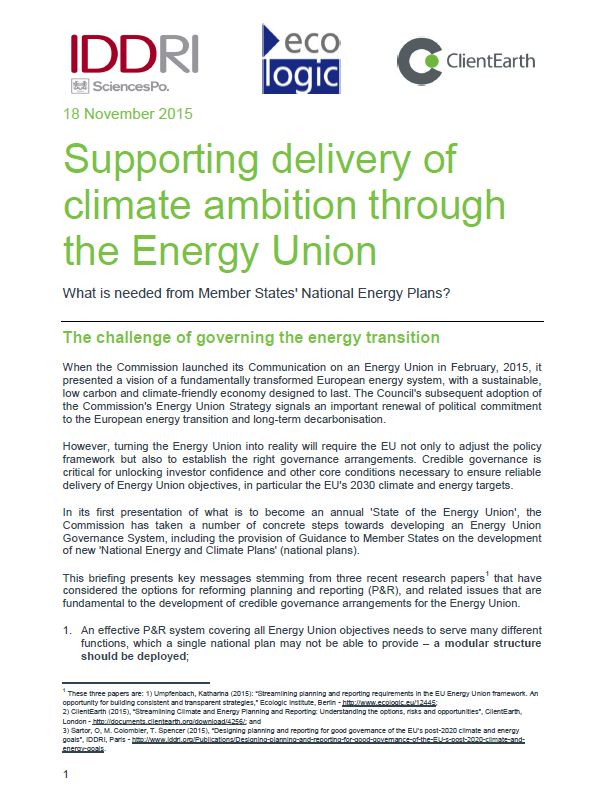To put our energy system back on track to achieve the long term EU greenhouse gas (GHG) emissions reduction targets, scaled up efforts are required especially in the three major areas of energy consumption: transport, heating and cooling, as well as electricity generation for households and industry. As these sectors still rely largely on fossil fuels, radical technological changes are needed. Therefore, the main objective of this project is to obtain an overall picture of what technological options are available and how these options can be combined to drive decarbonisation efforts and ensure resilience of the EU energy system.
The EU aims to drastically reduce its greenhouse gas (GHG) emissions in the longer term, targeting a reduction of 80-95% by 2050 compared to 1990 levels. While this ambitious GHG reduction target requires huge efforts from all relevant sectors, the energy sector is of key importance as it is responsible for the lion's share of EU GHG emissions and therefore crucial for decarbonising the economy. Part one of the project financed by the European Parliament provides an overview of key technologies and policy instruments that are currently being used to drive decarbonisation strategies. Part two and three present key future technologies and policy options that need to be developed on order to sustain the decarbonisation in the medium and long term. Part four of the project describes the impact and potential synergies or interrelations of decarbonisation efforts with other policy areas.
Being responsible for the first part of the project, Ecologic Institute carries out a report providing an overview of the key technologies and policy instruments that are currently driving up the use of renewable energy sources (RES) and driving down the costs. The report also assesses the costs associated with these measures and the expected impacts up to 2020. Next to this report, Ecologic Institute develops nine RES factsheets (incl. biofuels, biogas, geothermal and heat pumps, hydropower, marine energy, solar photovoltaic, solar thermal, solid biomass and wind) including highly compromised information inter alia on the technologies' share in final energy consumption, on its capacity and generation, on potential, levelised costs of electricity (LCoE), challenges, impacts and on ongoing research.



